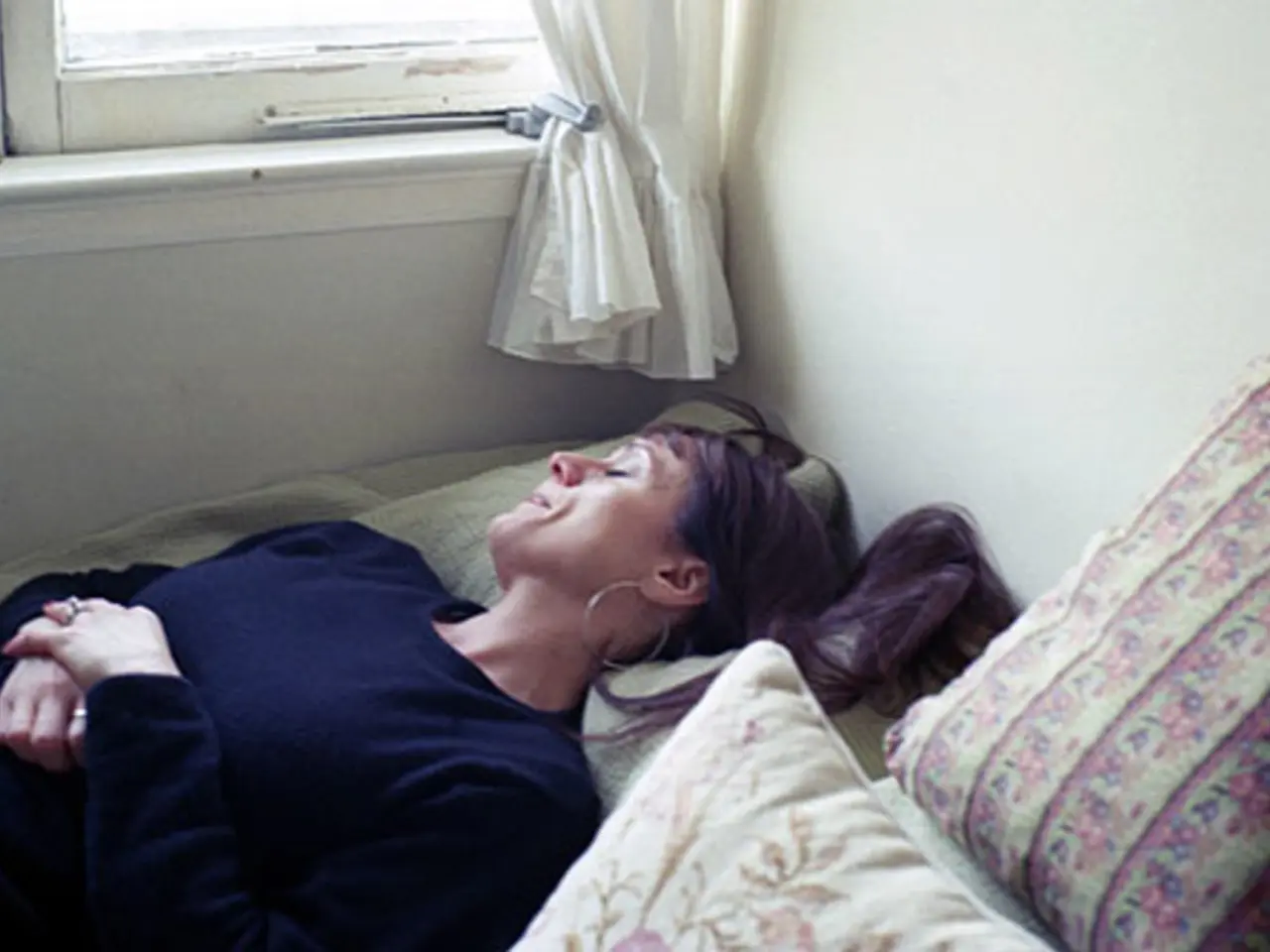Exploring Night-Time Mumbling: Decoding the Silent Messages Your Body Sends During Sleep
In the realm of sleep disturbances, a combination of symptoms such as calf cramps, numb hands, and itchy pubic area can be puzzling. These symptoms may point towards multiple overlapping causes involving circulation, nerve function, vitamin deficiencies, and possibly dermatological or neurological issues.
Firstly, calf cramps during sleep are often attributed to deficiencies in essential minerals like magnesium, potassium, calcium, or vitamin D, all of which are vital for normal muscle function and nerve signaling. A deficiency can cause muscle overexcitability, spasms, and cramps, especially at night. Poor circulation in the legs from peripheral artery disease (PAD) or general circulation problems can also cause cramps and numbness, particularly worsening at night.
Numbness in the hands is another common symptom, often resulting from nerve compression or irritation. Conditions such as ulnar nerve compression at the elbow, repetitive strain injuries, or rotator cuff inflammation pressing on nerves could be the culprits. Additionally, deficiencies in vitamin B12 can disrupt nerve conduction and cause numbness, tingling, or muscle cramps.
The itchy pubic region or skin sensations, such as crawling feelings, might stem from skin irritation, allergies, or neuropathic causes like formication, which is the sensation of bugs crawling on or under the skin. Formication can be linked to nerve dysfunction, medication side effects, or hormonal changes, such as those experienced during perimenopause/menopause. Anxiety or neurological conditions can also cause strange skin sensations or itchiness.
Synthesising these symptoms, a nutritional deficiency affecting both muscle and nerve function (magnesium, calcium, potassium, vitamin D, B12) could explain the cramps plus numbness. Poor circulation or nerve entrapment might cause leg cramps and hand numbness. The itchy pubic region sensation might be a separate dermatological or neurological issue, possibly related to nerve irritation or a formication-like symptom linked with nerve dysregulation or anxiety.
If these symptoms occur together and affect sleep quality, they should be evaluated by a healthcare professional who can assess for vascular issues, neuropathies, nutritional deficiencies, and skin or neurological causes. Diagnostics such as blood tests (for vitamins and minerals), nerve conduction studies, and a physical exam would be useful.
For more information on how stress can affect your sleep, visit Baylor College of Medicine's resources. A study by Sleep found associations between evening intake of alcohol, caffeine, and nicotine, and sleep duration and continuity among African Americans in the Jackson Heart Sleep Study. The Cleveland Clinic has statements on talking in your sleep and disruptive sleep disorders like sleep apnea.
In case of serious medical symptoms, calling 911 is recommended. The Substance Abuse and Mental Health Services Administration provides information on Post-Traumatic Stress Disorder (PTSD). The National Library of Medicine offers lists of signs that require emergency medical attention and signs for medical emergencies.
Dr. Kelly Glazer Baron, PhD, MPH, DBSM, associated with University of Utah Healthcare, is a renowned expert in the field of sleep medicine.
- Ensuring adequate intake of essential nutrients like magnesium, calcium, potassium, vitamin D, and B12, which are crucial for both muscle function and nerve signaling, could potentially alleviate the combined symptoms of calf cramps and hand numbness during sleep, contributing to overall health-and-wellness and mental-health.
- The itchy sensation in the pubic region may be distinct from the other symptoms, potentially originating from dermatological or neurological causes, such as neuropathic conditions like formication or anxiety-related skin disorders, thereby demanding separate investigation for comprehensive health and mental well-being.




